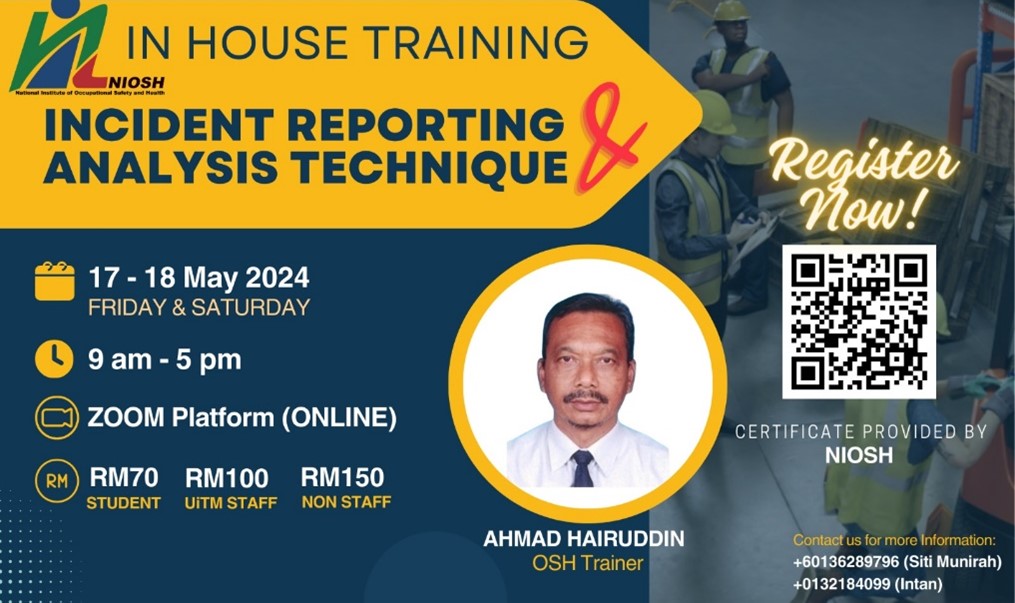
17 – 18 May 2024 – Incidents can happen anywhere and at any time in various kind of settings and circumstances whether it is a workplace accident, traffic collision, medical emergency, or a natural disaster. Accidents are inevitable, but preparation, risk assessment and safety rules can reduce the potential and damage. Communities and organisations may learn from past errors and minimise future issues by encouraging communication and analysing. Realising the unpredictable time and place for the incident to be occurred, individuals and organisations can take preventive measures to reduce risks, save lives and promote well-being. Thus, an incident report and data analysis, as one form of the nonverbal communication, are crucial to ensuring workersafety, risk management and protect the whole organization as compliance with the regulations.
Considering the role and awareness of the incident reporting, a short course, noncompetency training; “In House Training: Incident Reporting and Analysis Technique” has been organized by the Faculty of Applied Sciences (FSG) UiTM Terengganu Branch Bukit Besi Campus in cooperation with the National Institute of Occupational Safety and Health (NIOSH) on 17th and 18th May 2024. This two-day training session was conducted via online by OSH Trainer; En. Ahmad Hairuddin bin Endut. The training has attracted 202 participants from varied backgrounds, including OSH practitioners, aviation and construction sector professionals and Diploma in Industrial Hygiene Technology students from FSG UiTM Terengganu Branch Bukit Besi Campus with the largest enrollment.

The training went well, even though it was conducted online. Five (5) main topics were covered during the training as aligned to the NIOSH module; (1) Occupational Safety and Health Act 1994, (2) Root Cause Analysis, (3) Accident Investigation Methodology, (4) Accident Case Studies and (5) Notification of Accident, Dangerous Occurrence, Occupational Poisoning and Occupational Disease. Topic 1,2 and 3 was covered on the first day while the remaining two (2) topics were taught on the second day. Before the training ended, there was also classroom discussion related to the Case Study. Aside from the fact that information is not free, it is hoped that participants understand the necessity of the incident reporting and analysis by learning from mistakes and preventing future incidents towards a culture of safety and continuous improvement.
Northaqifah Hasna Mohamed Khir
Intan Nureleiza Fadhlina Binti Kamaruddin
Mardhiah Abdullah
Dr. Nurul Huda Kamarulzaman
Wan Farahiyah Wan Kamarudin
Siti Munirah Muda
Adida Muhammud
